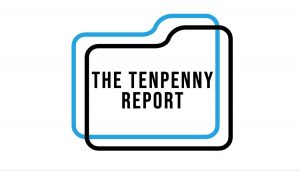The sneaky bastards at the FDA did this a year ago, right under our noses. In January 2024, the FDA finalized a rule permitting Institutional Review Boards (IRBs) to waive or even alter informed consent requirements for clinical investigations deemed “minimal risk.” TTR guest author Jon Fleetwood, as always, brings us this news in his excellent reporting. Read his entire article here.
IRBs. Informed Consent. What does it all mean? If you don’t do research, you likely won’t know.
What is an IRB?
An Institutional Review Board (IRB) is a panel of individuals who review and oversee research studies that involve human participants. The IRB ensures that the studies are ethical and that they comply with all regulations. The IRB’s primary function is to protect the rights and welfare of the human research participants, making sure they are treated fairly, ethically and safely.
Anyone doing research must have an IRB, and that not only applies to direct human research (meaning the human is actually being given a drug or using a device), but also for indirect studies where the patient isn’t “touched” so to speak or actively involved. A direct example would be a clinical trial where a new drug is being tested. The human participants actually enroll in the trial and are given test doses of the medication. Even if a human participant is given a placebo, that research must be covered by an IRB to ensure the patients’ physical and psychological well-being. An example of an indirect study is one in which a company or other research entity is just using data from patients, with no direct patient interaction. In some cases an IRB is still needed to use data that may potentially identify who the subjects are.
The bottom line is that an IRB is needed for any drug, device assessment, survey or other study. And this is what makes the FDA’s ruling so unbelievable. Fleetwood says the implications are staggering, and he is absolutely right:
“Under this waiver, any person’s health data, biospecimens (such as blood or tissue samples), or medical records can be accessed and used for FDA-regulated research if it meets vague and highly subjective criteria.”
 The FDA has granted a waiver allowing big pharma and the government to access and use Americans’ private health data without their knowledge or consent if the research is minimal risk. But who decides what minimal risk is?
The FDA has granted a waiver allowing big pharma and the government to access and use Americans’ private health data without their knowledge or consent if the research is minimal risk. But who decides what minimal risk is?
Minimal risk means the harm from a study will be no greater than harm you encounter in everyday life. Interestingly, the definition also encompasses minimal risk to confidentiality of personal data, meaning anonymizing data for minimal privacy risk. If the FDA’s waiver includes blood, biospecimens and God knows what else, how can their latest edict possibly ensure minimal risk?
What if you have a compromised IRB, like the one at Johns Hopkins University (heavily funded by the Bill & Melinda Gates Foundation) might be? If the risks of a new drug are excessive, the IRB is supposed to not allow the study. Are they going to truly inform patients about side effects, or are they going to lean toward sacrificing your rights for Gates’ next big pharma endeavor? Given the precedent already set by Pfizer, Moderna and others for hiding side effect data, this new FDA ruling should send everyone running for the hills.
Informed Consent
One of the main functions of an IRB is to ensure informed consent, meaning that the study participant must fully understand the nature of the research and any potential risks. A foundational principle of informed consent is the patient’s absolute right to withdraw from the study at any time for any reason – without penalty.

IRBs are made up of scientists and researchers, non-scientific community representatives, and legal and regulatory experts. All of these people are experts in informed consent, as are anyone doing medical research. Suffice it to say that anyone involved in any aspect of human subject research is well-versed in IRBs and informed consent. Why? Because they are required to take the training called Collaborative Institutional Training Initiative (CITI). Anyone who wants to do an NIH grant must be CITI trained. Researchers at universities and medical academic centers must take CITI training, too.
To be blunt, there is no one involved in any aspect of human subjects research who has not had CITI training. The centerpiece of this training is ethical conduct in research, clinical trials and publication. It covers research misconduct such as plagiarism, and fabrication and falsification of research results (you know, like many of these researchers have done convincing us the COVID jabs are good for us.) And it certainly covers informed consent and protection of vulnerable research populations such as children and individuals with cognitive impairment (like the elderly), two of the most TARGETED populations for the COVID jabs.
Fleetwood states that the new FDA waiver allows researchers to use data or biospecimens from individuals who may never know they are part of a study. As much as the FDA yammers on with their justifications, they flat out know that this waiver is wrong. There’s no way they can think this is the right way to go because they too are CITI-trained. And they’re likely to abuse the definition of “minimal risk”; soon, gray-area decisions will become the norm, driven by the big pharma overlords that basically own the FDA.
Beyond the FDA’s recent decision, I have always been so upset about the COVID mandates for the very reasons I outline here. The administrators of these jabs know that they are in gross violation of informed consent. The mandates, the seclusion of the elderly, and the shaming of kids to take the jab lest they kill grandma are ALL ethics violations. And any researcher or medical professional who claims they didn’t know is lying. Why? Because they are all professionally trained, courtesy of CITI. Believe me, they all know what they’re doing.
++++++++++++++++++++++++++++++++++++++++++++++++++++++++++++++++++
 Like what you’re reading on The Tenpenny Report?
Like what you’re reading on The Tenpenny Report?
Share this article with your friends. Help us grow.
Get more of Dr. Tenpenny’s voice of reason at her website.
Join our list here
Make a donation here (and thank you!)
++++++++++++++++++++++++++++++++++++++++++++++++++++++++++++++++++
Fed Up Texas Chick is a contributing writer for The Tenpenny Report. She’s a rocket scientist turned writer, having worked in the space program for many years. She is a seasoned medical writer and researcher who is fighting for medical freedom for all of us through her work.
